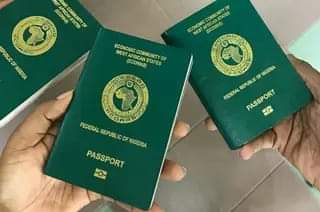7 out of 10 Nigerian students & others denied American visa in 2022
The United States denied 71 per cent of students in Nigeria and other West African countries visas in 2022, according to a report by the Presidents’ Alliance on Higher Education and Immigration.
This translates to denying 7 out 10 Nigerians that applied for American visa in the year 2022.
The report, titled, ‘Shorelight,’ revealed that West Africa had the highest visa refusal rate on the continent in 2022.
Central Africa had a refusal rate of 61 per cent, Northern Africa had a refusal rate of 49 per cent, Eastern Africa had a refusal of 48 per cent, and Southern Africa had a rate of 16 per cent.
The report noted that “The visa denial rates for Southern Africa are in fact among the lowest in the world, paralleling those of Europe.
“If Southern Africa is excluded from the mix, the denial rate for the rest of Africa increases to 57 per cent as compared with 54 per cent overall.”
According to the alliance of American college and university leaders, data from MPOWER Financing for international students who obtain financing to study in the U.S. revealed a similar pattern. It stated that of the 3,000 students from Sub-Saharan Africa admitted for graduate studies to a top U.S. university in 2022, only about 60 per cent were granted a student visa to the US despite being admitted and having secured the required funding.
It said this translated to a denial rate of 40 per cent, compared to 30 per cent for India, and 10 per cent for students from China and Brazil.
Commenting on the difficulty of getting a US visa from Nigeria, the alliance said, “MPOWER further reports that first-hand accounts from African students suggest a range of barriers related to the visa interview process, from securing visa interview slots in the first place to having to travel to a second country due to the unavailability of adequate interview slots in Nigerian cities, and to ultimately being held to a higher standard by U.S. immigration authorities than their peers from other emerging markets.”
The alliance argued that while there have been concerns about fraud, many students are actually victims, rather than perpetrators of fraud. It said the high visa denial rates had reportedly resulted in African students falling victim to con schemes by fraudulent actors who offer false guarantees for securing a visa.




